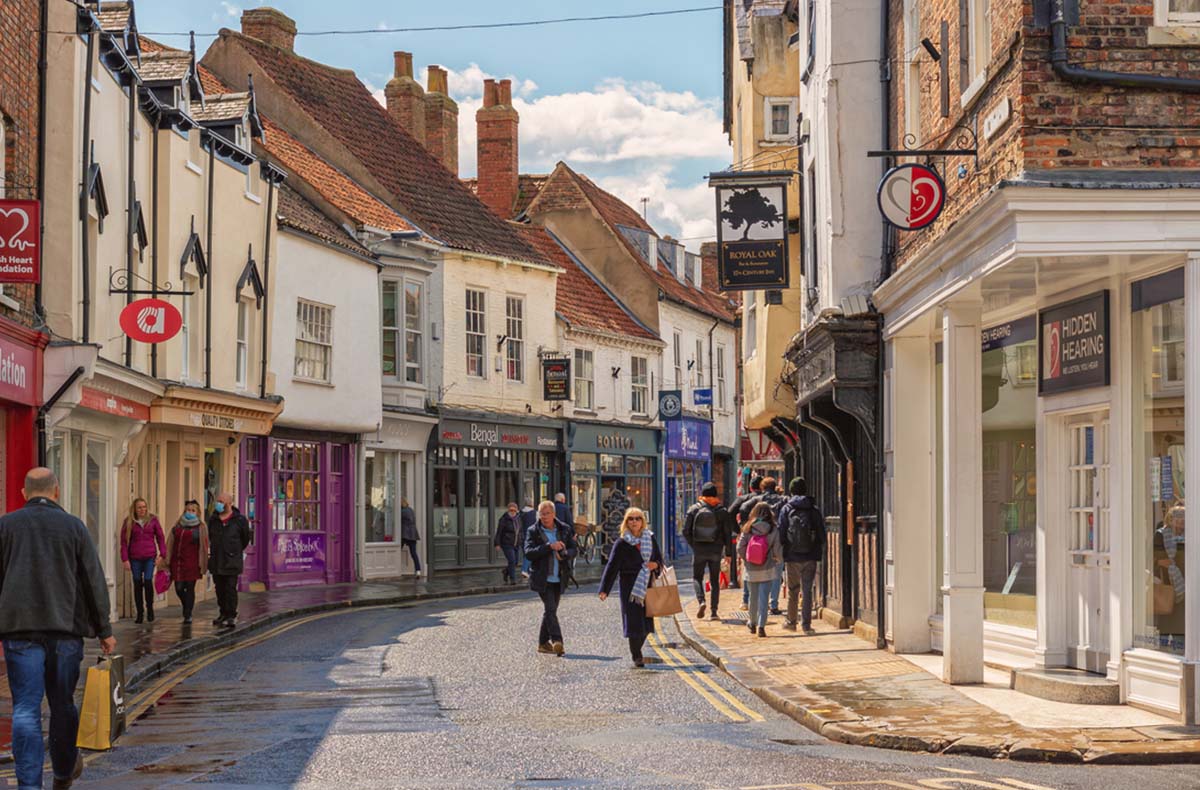
John Donne famously wrote that “no man is an island.” He expanded that “every man is a piece of the continent, a part of the main; if a clod be washed away by the sea, Europe is the less… as any man’s death diminishes me because I am involved in mankind.”
You may be shocked to learn that I didn’t intend to start my first New Thinking piece with the words of a 16th century metaphysical poet and priest. Nor would you have necessarily thought that such a beautiful and profound passage would be relevant to a 21st century retailer of alternative women’s clothing and pop culture merchandise. But be patient with me, and I’ll tease out its significance in the next few hundred words or so.
From working as casual Saturday staff in a small Northern women’s clothing boutique to opening my first store on a small Thai island and subsequently launching women’s High Street and online fashion brand Yella Brick Road, I’ve been involved in retail in some capacity for around 25 years. In that time, I’ve been witnessing the slow death of bricks and mortar retail like a rubbernecker watching a car crash from the passenger seat.
But all is not lost: town center shopping is not yet dead, and there is still time to arrest the slide. While I don’t have the word limit to go into the long list of actions needed to resuscitate retail, there is one underappreciated factor that is oft-ignored by those within the sector. It is particularly dismissed by those new businesses of a similar size to my own. That is: the importance of competition and its benefits in retail.
Retail on a Thai Island
To crystallize this point, I want to share an anecdote (retailers love anecdotes.) When I was essentially little more than a backpacker, I owned a small clothing shop in Ko Phangan, Thailand. I was part of a great group of retailers catering their products for Western tourists. Though there was (lots of) overlap between us in the products we all sold, the sense of community that we shared and the help we offered each other meant that I—and my fellow retailers—could make a comfortable living by a Western backpacker’s standard.
All too many new shops would open and, unfortunately, view their fellow retailers as the enemy. They would invariably ignore our existence while paradoxically abusing us to customers. And each of them would be gone within months. Quite simply, they didn’t appreciate the competition, and we didn’t appreciate them.
Retail in a deprived Northern town
Fast forward to the present: I’ve owned Yella Brick Road in the South Yorkshire town of Rotherham for around thirteen years. One of the most impoverished towns in the country, Rotherham town center suffers from the presence of a huge shopping center (Meadowhall) on its doorstep, along with an out-of-town retail park hosting popular retail chains.
Since Yella Brick Road’s inception (backed by matched funding… and a visit from retail expert Mary Portas), we’ve grown from a one-person (me) tiny High Street shop to a six-strong team running a larger unit across three floors, plus a website with a higher turnover than our bricks and mortar.
We expect to open our second unit in neighboring Sheffield in early Spring and have plans for further outlets later in the year and into 2024. All of this is not to toot my horn, but to emphasize how I couldn’t have reached this level without a recognition of the role that competition played in my success as a retailer.
Cards on the table, in the early days of Yella, I didn’t abide by my “love thy competitor” mantra. I eyed my fellow clothing retailers with suspicion and no little dislike. I had no desire to send my customers to them. And while I never celebrated their demise, there would be a sense of relief when each one closed, as it would mean a bigger slice of a small customer base for me. To put it kindly: I was a naïve idiot.
When a competitor dies…
Here’s the main problem with not loving your competitors. No competitors mean limited choice for the consumer. Which means empty units. Which gives the impression—particularly in small struggling towns—that there are not enough shops to plan a visit around.
Each time a competitor closes its doors, a clod, a piece of the continent, a part of the main is washed away. A town center will be less; its retail offering diminished.
So, if I can speak to any fledging High Street retailer for a moment; love thy competitors. Mention them positively to your customers. Respect their product ranges. Help them where you can, whether it be with some change, or a spare till roll. Don’t speak ill of them. And most importantly: don’t undercut. The race to the bottom is downhill, and it hurts when you get there.
If we return to Donne one last time, he also wrote “Never send to know for whom the bell tolls; it tolls for thee.” I will employ this line with the same sledgehammer subtlety I have throughout: For every competitor that dies, let it remind you of your own business’s mortality. If you don’t find joy in your enemy, that bell will one day toll for you.



